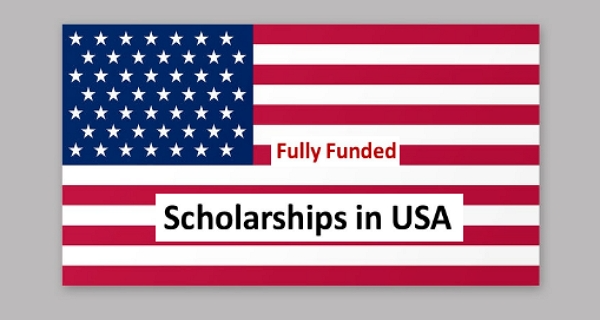Pursuing a master’s degree can be a transformative experience, opening doors to specialized knowledge, career growth, and valuable global connections. However, the cost of graduate education can be a significant challenge for many students. Scholarships for master’s programs offer a practical solution, making higher education more accessible and affordable.
This comprehensive guide explores various master’s degree scholarships available in 2025, covering different types of scholarships, eligibility requirements, application procedures, and expert tips to help you secure funding for your studies.
Why Pursue a Master’s Degree?
A master’s degree provides numerous benefits, including:
- Advanced Knowledge: Deepen your expertise in a specific field.
- Career Advancement: Improve employability and increase earning potential.
- Networking Opportunities: Connect with industry professionals and academic peers.
- Research Opportunities: Engage in groundbreaking research to address global challenges.
Advantages of Master’s Degree Scholarships
Scholarships make graduate education more accessible by offering:
- Financial Assistance: Covering tuition, living expenses, and related costs.
- Academic Recognition: Enhancing your academic and professional profile.
- Access to Prestigious Institutions: Enabling students to study at top universities worldwide.
Types of Scholarships for Master’s Degrees
- Merit-Based Scholarships
Awarded to students with outstanding academic, artistic, or athletic achievements. - Need-Based Scholarships
Designed for students from low-income backgrounds who demonstrate financial need. - Field-Specific Scholarships
Targeted at students pursuing degrees in specific disciplines such as STEM, business, or the arts. - Government-Funded Scholarships
Offered by governments to promote international education and cultural exchange. - University-Specific Scholarships
Provided by universities to attract talented students globally. - International Organization Scholarships
Sponsored by global organizations such as UNESCO, WHO, and the United Nations.
Top Master’s Degree Scholarships for 2025
1. Chevening Scholarships
- Eligibility: Open to students from over 160 countries applying for a master’s degree in the UK.
- Benefits: Covers tuition, travel expenses, and living costs.
- Deadline: Varies annually.
2. Fulbright Foreign Student Program
- Eligibility: Available to international students pursuing master’s or PhD programs in the USA.
- Benefits: Includes tuition, travel expenses, and a monthly stipend.
- Deadline: Country-specific deadlines.
3. DAAD Scholarships
- Eligibility: For international students applying for master’s degrees in Germany.
- Benefits: Covers tuition, living expenses, and travel allowances.
- Deadline: Varies by program.
4. Erasmus Mundus Joint Master’s Degree Scholarships
- Eligibility: Open to students worldwide applying for joint master’s programs in Europe.
- Benefits: Covers tuition, travel, and living costs.
- Deadline: Typically between October and January.
5. Australia Awards Scholarships
- Eligibility: For students from Asia, Africa, and the Pacific region pursuing a master’s degree in Australia.
- Benefits: Covers full tuition, living expenses, and health insurance.
- Deadline: May 2025.
6. Rhodes Scholarships
- Eligibility: Open to outstanding students applying to the University of Oxford.
- Benefits: Covers tuition fees, a living stipend, and travel costs.
- Deadline: Varies annually.
7. Knight-Hennessy Scholars Program
- Eligibility: Graduate students applying to Stanford University.
- Benefits: Covers tuition and living expenses.
- Deadline: Varies.
8. Gates Cambridge Scholarship
- Eligibility: Available to international students pursuing a master’s degree at the University of Cambridge.
- Benefits: Full funding for tuition, living costs, and travel.
- Deadline: Varies by program.
Step-by-Step Guide to Applying for Scholarships
1. Research Scholarship Opportunities
Use reputable sources to find scholarships that match your academic and professional profile.
2. Understand Eligibility Requirements
Carefully review academic, nationality, and program-specific criteria before applying.
3. Prepare Necessary Documents
Commonly required documents include:
- Academic transcripts and certificates
- Standardized test scores (e.g., GRE, GMAT, IELTS, TOEFL)
- Personal statement or motivation letter
- Recommendation letters
- Proof of financial need (if applicable)
- Valid passport
4. Craft a Strong Application
Highlight your achievements, career goals, and how the scholarship aligns with your aspirations.
5. Submit Applications on Time
Use official application portals and adhere to deadlines.
6. Follow Up
Check your email for updates or additional requests from scholarship providers.
Tips for a Winning Scholarship Application
- Start Early: Give yourself ample time to gather documents and refine your application.
- Be Authentic: Showcase your unique qualities and experiences.
- Customize Applications: Tailor each submission to the specific scholarship requirements.
- Seek Feedback: Have mentors or advisors review your essays and documents.
- Proofread Thoroughly: Ensure your application is free of errors.
Common Mistakes to Avoid
- Missing Deadlines: Submit applications well before the deadline.
- Incomplete Applications: Ensure all required documents and information are included.
- Generic Essays: Customize each essay to align with the scholarship’s objectives.
FAQs About Master’s Degree Scholarships
Q1: Can international students apply for master’s scholarships?
Yes, most scholarships are open to international students.
Q2: Are all scholarships fully funded?
Some scholarships cover full expenses, while others provide partial funding.
Q3: Do I need work experience to apply?
Certain scholarships, like Chevening, require work experience, but many do not.
Q4: Can I apply for multiple scholarships?
Yes, applying for multiple scholarships increases your chances of receiving funding.
Scholarships for master’s degrees in 2025 present a fantastic opportunity for students to access world-class education without financial constraints. With numerous funding options available from governments, universities, and international organizations, there is a scholarship for everyone. By following this guide, you can effectively navigate the application process and increase your chances of securing financial support for your academic journey.
